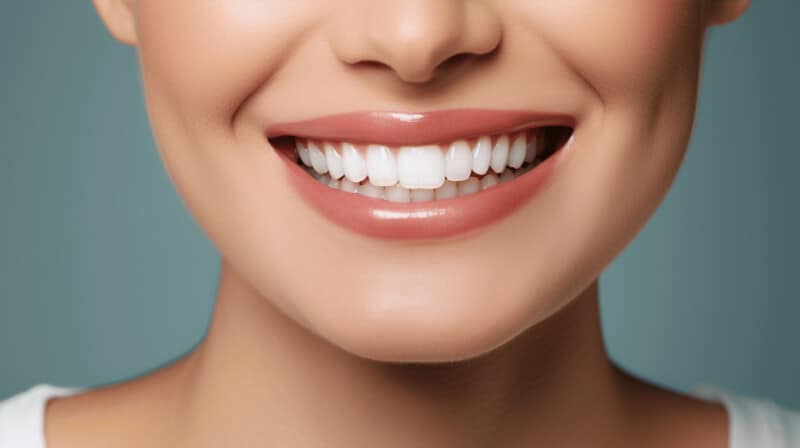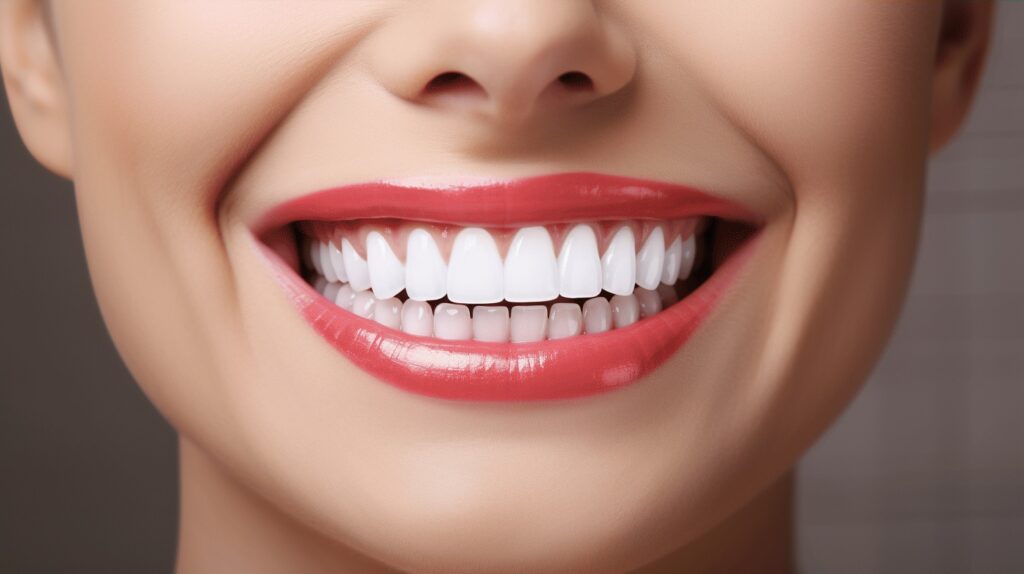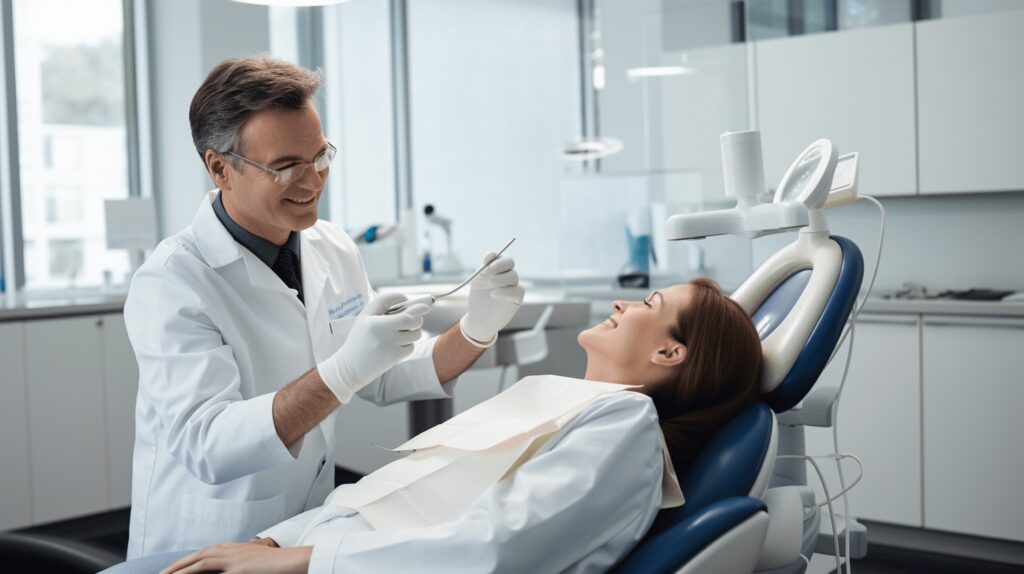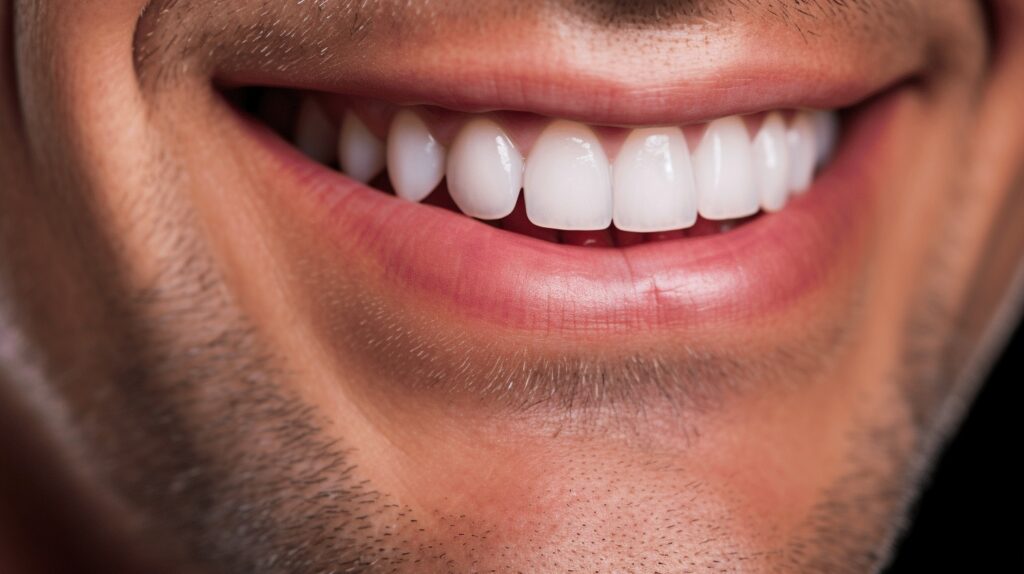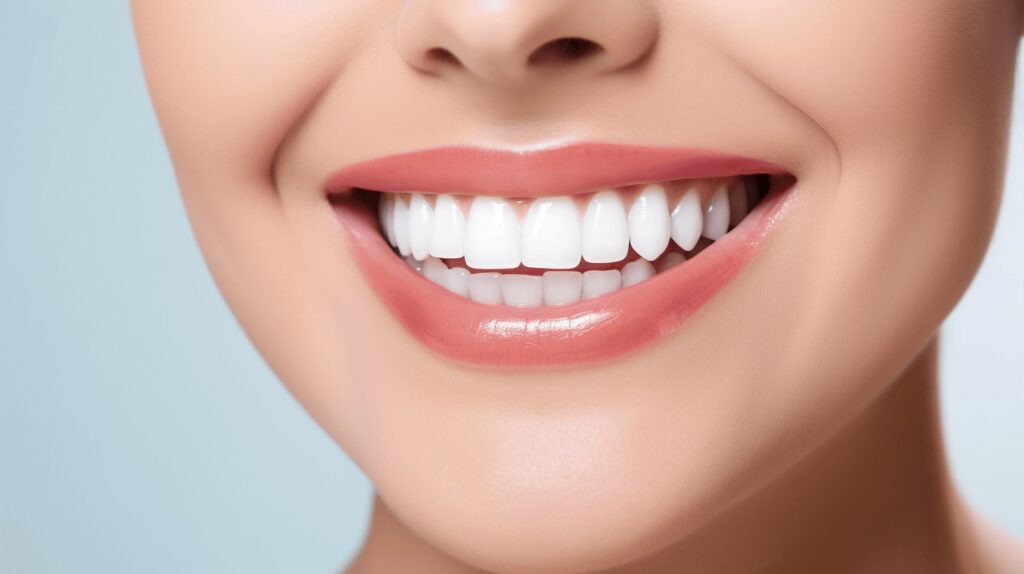Just as we enjoy that first burst of morning sunshine or the refreshingly cool breeze of an evening stroll, we relish the pleasure of a dazzling smile and wholesome oral health.
It all starts in the mouth, they say, and quite appropriately so! A radiant smile not only amplifies an individual’s confidence but can also be a clear indicator of their overall health. 🌟
Aiming to bring light into the crucial yet somewhat overshadowed world of preventative dentistry, this article will take you through the current state of oral health, the economic implications of preventative care, modern advancements in preventative dentistry, and strategies for improving oral health.
Let’s explore together how preventative dentistry plays an instrumental role in maintaining not just the health of our teeth but contributing substantially to our overall well-being, allowing us all to chew with ease, speak with conviction, and most importantly smile with unrestrained joy! ➡️
Table of Contents
Current State of Oral Health
There is no doubt that oral health is a crucial aspect of our overall wellbeing, and maintaining an excellent state of dental hygiene impacts more than just our smiles. Whether it’s the confident smirk you sport at a social gathering or the healthy set of teeth that enable you to savor your favorite foods, oral health plays a significant role in our lives. However, the current statistics surrounding it paint a rather grim picture. Let’s dive in and have a closer look.
Children’s Oral Health
From their first adorable toothless smile to the development of permanent pearly whites, children’s oral health is undeniably vital. Though we might think that kids maintain their dental hygiene efficiently – thanks to the advent of flavored toothpaste and fun-to-use dental floss – the numbers tell us a different story.
Recent data revealed some alarming facts; the percentage of children aged 1–17 years who had a dental cleaning in the past 12 months decreased from 83.8% in 2019 to 80.9%. We also found that 13.2% of children ages 5–19 years currently have untreated dental caries (2015-2018). 😦🦷
More so, these figures underscore the urgent need for concerted efforts from parents, healthcare providers, and education agencies to teach kids about the importance of exemplary dental practices and finding ways to Maintain Good Oral Health.
Adult’s Oral Health
Oral health in adulthood continues to be paramount. It demands consistent efforts, given that adults are prone to a higher number of dental disorders compared to children. From gum diseases to missing teeth, the spectrum is broad and often severe.
A recent study unveiled a concerning trend in adult oral healthcare. Around 25.9% of adults ages 20–44 currently have untreated dental caries (2015-2018). Furthermore, in 2018, only 65.7% of adults had visited a dental clinic, whereas 45.8% had a permanent tooth removed. 😯😮
Albeit gloomy, these numbers only serve to emphasise the importance of keeping up a routine that nurtures good oral maintenance for a brighter and healthier future.
In short, the current state of oral health among both children and adults evince an urgent need for fostering robust dental hygiene habits. Remember, to maintain sparkling smiles and enjoy your favorite food without worry, keeping up with consistent dental check-ups and following reliable resources on oral health practices are paramount.
Economic Impact of Preventative Care
The value of preventative care in our healthcare system is often under-appreciated. However, the economic benefits stemming from such proactive steps cannot be ignored. Focusing particularly on the sector of preventative dentistry, these measures warrant a closer look because of the implications they have on organizational expenses and society’s overall quality of life.
The Monetary Payoff of Prevention
Let’s consider the numbers. Our data shows that enrollees who experienced five years of prevention showed a significantly lower cost in 2019 – a reduction of 43%. This translates to a financial saving of $263 per enrollee, as compared to those without any preventative care. Undeniably, the long-term monetary payoff of early detection and prevention among patients is substantial.
- Cost Savings: Regular screenings and health checks may seem expensive initially, but this preliminary investment can lead to significant savings in the long run by avoiding the cost of treating conditions at more advanced and critical stages.
- Increased Productivity: A healthier population also means less sick leave, leading to higher productivity levels. In a business setting, fewer health-related absences result in a more reliable and active workforce, boosting overall operational efficiency.
- Improved Quality of Life: The positive influences of preventative care extend beyond direct economic benefits. Adopting preventative measures could lead to an increased life expectancy and improved quality of life.
The Role of Preventative Dentistry is a shining example of the favorable economic impact of preventative care. Within this realm, regular check-ups and treatments prevent more serious oral health complexities later, reducing the likelihood of costly procedures or treatments.
While investing in prevention may seem like an optional cost at first, considering the broader ramifications allows us to see it as an essential healthcare strategy. From the cost-saving potential to the improved quality of life, proactive prevention contributes significantly to our collective healthcare landscape. As our data and the example of preventive dentistry illustrate, the rewards of investing in health maintenance are abundantly clear – prevention pays off.👏
Implications of Neglecting Preventative Care
The old adage, “An ounce of prevention is worth a pound of cure,” still rings true, particularly when it comes to oral health. Preventative dental care is an area where small efforts, made consistently, can dramatically influence the state of one’s oral health and overall well-being. So, what happens when preventative dental care becomes a mere afterthought? Let’s unravel the implications.
For Young Children
The reality can seem harsh — children under six are reportedly 1.7 times less likely to have a preventive dental visit. But, why is this so critical? Let’s take a look.
- Children’s teeth are still forming and developing. Neglecting dental care during these early years could lead to serious long-term effects such as misalignment or decay.
- Children with poor oral hygiene might develop plaque at an early age. This plaque could lead to cavities and gum disease, often an unpleasant experience for youngsters.
- Healthy teeth are paramount for proper nutrition. Problems with teeth could negatively impact a child’s ability to chew and consequently, their overall nutritional intake.
Importantly, a child’s early experiences at the dentist can influence their approach to dental care into adulthood. By encouraging a routine of preventative care, we’re not just safeguarding their oral health, but also setting them on the path to making informed choices about their overall wellbeing.
For Adults
Lapsing into complacency might come easily, but it comes hand-in-hand with potential repercussions too. Did you know that as per recent statistics, 26% of American adults have untreated dental cavities?
Let’s ponder on how overlooking preventative dental care can affect adults:
- Neglected dental caries is one of the major causes of tooth loss in adults. Bear in mind, losing a tooth isn’t as simple as it was in childhood. Adult tooth loss is permanent and could require expensive procedures like implants or bridges to remedy.
- Poor oral health can take a toll on your overall self-esteem and mental well-being. A dazzling smile can make you feel more confident and comfortable in social scenarios.
- Studies continue to underline the link between oral health and overall body health. A neglected mouth could increase your vulnerability to conditions like heart disease, diabetes, and respiratory diseases.
Remember the importance of preventative care in Preventing Tooth Decay. It’s an investment in your health that pays dividends and grants you the priceless benefit of sound health and peace of mind.
Neglecting preventative dental care, then, is not just a minor oversight. It’s a decision that can have major implications for both young children and adults. So, let’s make a concerted effort to prioritize our oral health. After all, it’s far more than just a sparkling smile; it’s the gateway to overall well-being.
Advancement in Preventative Dentistry
Taking a journey into the world of preventative dentistry, one cannot help but marvel at the recent advancements in the field. A bright, healthy smile says a lot about us, and keeping that smile beaming has become even easier, thanks to the latest dental technologies and biomimetic material applications. Owing to the shift in healthcare focus towards prevention, everyone can now enjoy not just aesthetically pleasing teeth but also robust dental health that can last a lifetime. 🦷
Enjoying the fruits of preventative dentistry begins with understanding its components. At the forefront, we’ve seen a remarkable shift in healthcare from treatment to prevention. While fixing the problem used to be the goal, dentists now strive to foresee and prevent oral complications before they occur.
This brings us to the role of modern technology and biomimetic dental materials. These materials mimic not just the look of natural teeth but also the structure and function, allowing patients to repair cavities and tooth decay in the least invasive and most restorative ways. Plus, their use helps to reduce dental trauma and keep natural teeth healthy and intact.
Among these technological advancements, digital X-rays take a front-row seat. They revolutionize dental imaging, allowing for safer, more precise diagnostics and treatments. What’s more, digital X-rays expose patients to less radiation and provide clearer, quicker images for a comprehensive dental assessment.
Remember, staying ahead of oral problems enhances not just your smile but also your overall wellbeing. With our Preventative Dentistry Techniques, you can maintain a healthier and brighter smile effortlessly. In the ever-evolving field of preventative dentistry, advancements are always on the horizon, promising a future where everyone can smile without reservations. 😃
Oral Health and Systemic Health
You’ve probably heard the age-old adage, “The eyes are windows to the soul”. While there’s certainly a romantic charm to it, an equally important but less poetic adage could be, “The mouth is a gateway to overall health”. Sounds surprising? Well, the relationship between oral health and general systemic health is stronger than you might realize.
Our mouths are teeming with bacteria — some good, some harmful. And while regular oral hygiene practices like brushing, flossing, and dental checkups help keep these bacteria under control, neglecting these practices can lead to infections, gum disease, and tooth decay. Notwithstanding the discomfort and embarrassment associated with these conditions, research is beginning to shed light on their potential implication in certain systemic health disorders.
Among the numerous interconnected links between oral and systemic health, these are few that standout:
- Adverse pregnancy outcomes: Pregnancy is a period when women’s bodies undergo significant hormonal changes. These changes increase vulnerability to oral health problems, which in turn can lead to complications during pregnancy. Poor oral hygiene has been connected with early labor, low birth weight, and prenatal complications, a reality which makes maintaining oral health absolutely essential for expectant mothers.
- Respiratory disease: Poor oral health can lead to respiratory infections as bacteria from the mouth can be inhaled or travel through the bloodstream into the lungs.
- Cardiovascular Disease: The harmful bacteria originating in the mouth due to poor oral hygiene can find its way into the bloodstream and can lead to blockages in the arteries, increasing chances of a heart attack.
- Diabetes: Many folks might be surprised to know that gum disease and diabetes are interdependent. While diabetes can increase the risk of gum disease due to elevated blood sugar levels, gum disease can make it more challenging to control those blood sugar levels.
Increase your emphasis on dental health care not just because it results in a radiant smile and fresh breath, but also because it significantly impacts your overall health.
Remember, your mouth can tell you a lot more about your health than just cavities and gum conditions. The stronger your oral health, the greater your chances of staving off some serious health concerns. For more insight, take a look at these Reasons Why Dental Health is Important.
In essence, a healthy mouth equals a healthier you! So, keep those pearly whites clean and shining, not just for the perfect Instagram selfie 🤳 but for a healthier, happier you! 😀
Strategies for Improving Oral Health
Good oral health is essential for our well-being, and it far extends beyond maintaining a sparkling set of pearly whites. It has far-reaching implications for our overall health and can prevent diseases like tooth decay, gum disease, and even tooth loss. But how exactly can we achieve this? Let’s explore some strategies that can take you a long way in maintaining impressive oral health.
Access to Dental Services
First and foremost, regular access to dental services can make all the difference in keeping a healthy smile. Here’s how:
- Regular Dental Checks: Thorough cleaning, when done professionally, can ward off plaque build-up, a major contributor to cavities.
- Specialized Dental Services: Services such as root canal treatments, orthodontics, and dental implants do not only restore your oral health but enhance your smiles as well.
Convenient and affordable access to these services can dramatically improve oral health. The key is to find a dentist with whom you feel comfortable and can establish a long-standing professional relationship.
Recommended Frequency of Preventative Dental Care
Prevention is the pulse of sound dental health. According to the American Dental Association, you should visit the dentist at least twice yearly. In our Preventative Dentistry for Children article, we’ve noted just how crucial starting excellent oral hygiene practices early is. These visits should ideally involve:
- Professional cleaning: This goes deeper than your standard brushing and flossing, helping eradicate plaque from hard-to-reach corners of your mouth.
- Dental exams: These periodic checks can help diagnose issues like cavities or gum disease in their early stages.
It’s never too early to start good dental care. For children, parents should start as soon as the first tooth appears.
School-based Interventions
Finally, school-based interventions can significantly improve kids’ oral health. Lessons on dental hygiene can be incorporated into the curriculum, while free dental check-ups for students ensure early identification and treatment of any dental issues. Noteworthy initiatives could include:
- Dental hygiene workshops: These would teach children the correct technique to brush and floss and stress the importance of regular dental hygiene.
- Free Dental Check-ups: Schools might collaborate with local dental clinics for free campus dental screenings.
Moreover, they can make dental care fun and exciting by gamifying routines, incentivizing healthy habits, and even stirring a bit of friendly competition among students.
Unquestionably, working on these strategies and maintaining good oral health practices diligently can counteract most dental woes and keep your smiles radiantly healthy and confident. Achieving superb oral health might look like a long journey, but remember, it starts with a single step – so why not take that step today?
Luxury Oral Healthcare Trends
Teeth are often the overlooked heroes of the face. They bear the brunt of our daily eating and drinking habits, all while keeping our face structure intact and making sure our smiles stay bright and beautiful. But with the advancement in technology, oral healthcare has taken a luxurious leap forward.
We see a surge in the interests of the masses towards luxury dental products to ensure that their smiles remain as beautiful as ever. The trend now is not just to focus on basic oral hygiene, but to offer premium experiences that cater to our pearly whites. Let’s dive deep into these exciting oral healthcare trends that are gaining momentum.
Electric Toothbrushes:
No longer confined to the realm of dentists and dental enthusiasts, electric toothbrushes are fast becoming a bathroom staple. With features like timer settings, numerous brush modes, and even Bluetooth connectivity, oral healthcare has never been more tech-savvy or luxurious.
Whitening Toothpaste:
Moving past the basic mint-flavored paste, luxury brands now produce toothpaste that promises not just fresh breath, but also a whiter smile. These are specially formulated with ingredients that help remove surface stains and lighten the teeth color gradually, ensuring you get the radiant smile you deserve.
Porcelain Veneers:
The Hollywood smile, as we like to call it, seems to be within our reach now, thanks to porcelain veneers. Crafted with precise artistry, these veneers not only cover up dental flaws but also offer natural-looking and confidence-boosting results.
Blue LED Lights:
Home teeth-whitening kits are all the rage, especially those equipped with blue LED lights. They promise professional-grade results at the comfort of your home, making teeth-whitening a luxurious yet convenient experience.
These trends signify a paradigm shift in oral healthcare, where luxury is as important as efficacy. Now, everyone can access and enjoy these out-of-the-box and lavish dental technologies. That’s why, in our Professional Oral Health Tips blog, we encourage everyone to recognize and embrace these trends.
After all, your smile deserves nothing but the best! So why not pamper it with luxury?
Conclusion
Let’s wrap up by reminding ourselves that our oral health is a fundamental element of our overall well-being. Ignoring preventative dental care can lead to an array of complications, both for our dental health and our systemic wellness. As we’ve explored, the repercussions also reverberate in the economic sphere, burdening us with unnecessary medical expenses.
We should all strongly consider making preventative dentistry a staple in our healthcare routine – for ourselves and our children. By incorporating routine dental check-ups, we lay the groundwork for oral health that may save us from costly and painful dental problems down the line.
At Wilshire Smile Studio, we’re committed to keeping your smile bright and healthy. Our team of experienced professionals uses the latest technology to provide exceptional dental care, from routine check-ups to advanced treatments. We also offer affordable prices and several financing options because we want quality dental care to be accessible to everyone.
Remember, maintaining a healthy smile isn’t a luxury – it’s a vital aspect of your overall health. So, take that step today towards a healthier and brighter smile. After all, your smile is worth it! 💫
Book your free consultation with us online or call (323) DENTIST (323-336-8478) today.
Frequently Asked Questions
1. What is the importance of oral health?
Oral health is important as it not only affects your teeth and gums, but also impacts your overall health. Poor oral health can lead to various systemic diseases, including cardiovascular disease, respiratory infections, and diabetes.
2. What is preventative dentistry?
Preventative dentistry focuses on taking preventive measures to maintain good oral health, preventing dental problems before they occur. It includes regular dental check-ups, professional cleanings, proper oral hygiene practices, and education about oral health.
3. Why is preventative dentistry important?
Preventative dentistry is important as it helps detect dental issues at an early stage, preventing them from progressing into more serious problems. It saves you from the pain, discomfort, and cost associated with extensive dental treatment.
4. What are the key components of preventative dentistry?
The key components of preventative dentistry include regular dental visits, proper oral hygiene practices (such as brushing, flossing, and mouthwash), a healthy diet, and avoiding habits like smoking and excessive use of alcohol.
5. How often should I visit the dentist for preventive care?
It is generally recommended to visit the dentist at least twice a year for preventive care. However, the frequency may vary depending on your oral health needs. Your dentist can provide personalized recommendations based on your condition.


